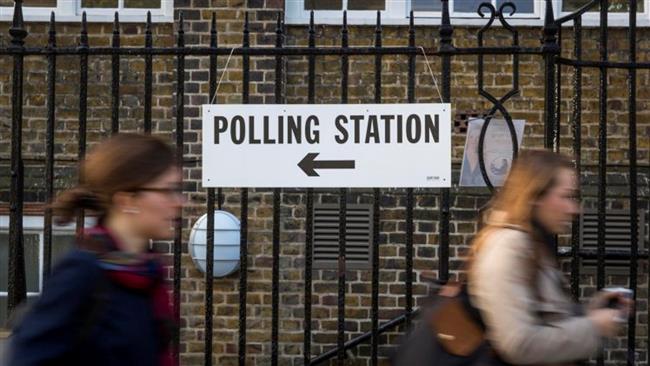UK voters biased against minority candidates: Study
British voters tend to avoid voting for candidates with foreign-sounding or ethnic minority names, an academic survey has found.
Data from UK elections over the past four decades shows that the trend could play a role in swinging around 200 council seats every year, according to a study published in the April 2017 issue of the British Journal of Political Science.
The study analyzed the outcomes for 400,000 candidates from British local elections dating from 1973 to 2012 and found that “candidates whose surnames suggest a British ethnic origin perform best, while non-Europeans attract fewer votes.”
To conduct their research, the academics categorized names into “British” sounding, “European” sounding, and “non-European” sounding.
They then used computer software to check the names against Plymouth University Elections Center's database of historic results and determine changes in each group.
Continental European names also saw a rise in discrimination and the trend has reached the highest level recorded in the data.
“Vote share is adversely affected when British candidates are replaced by those with European and non-European surnames, while the opposite pattern of succession is associated with a boost in votes,” the analysis found.
“It is clear that the outcome of some elections has been determined by the parties’ choice of candidates,” it further argued.
The findings appear to confirm warnings by UK Parliament’s head of security about growing abuse against ethnic minority MPs on social media.
Last year’s London mayoral election, for example, was overshadowed by a bitter campaign that saw Tory candidate Zac Goldsmith accusing his Labour rival, Sadiq Khan, of having ties with extremists.
Khan, the son of a Pakistani bus driver and a seamstress, proceeded to win the vote.
“The evidence clearly points to name discrimination among some voters participating in local elections in Britain,” the academic survey concluded.
IRGC Navy seizes two fuel smuggling vessels in Persian Gulf
Iran march into AFC Futsal Asian Cup final with win over Iraq
Hamas slams latest Israeli strikes on Gaza, says Netanyahu aims to derail truce
UN group denounces EU’s ‘illegal’ designation of Iran’s IRGC
Russia hopes US ‘resorts to wisdom’ amid tensions with Iran
VIDEO | Press TV's news headlines
Palestine Action activists exonerated
Russia, Ukraine hold talks after ‘productive’ opening session















 This makes it easy to access the Press TV website
This makes it easy to access the Press TV website